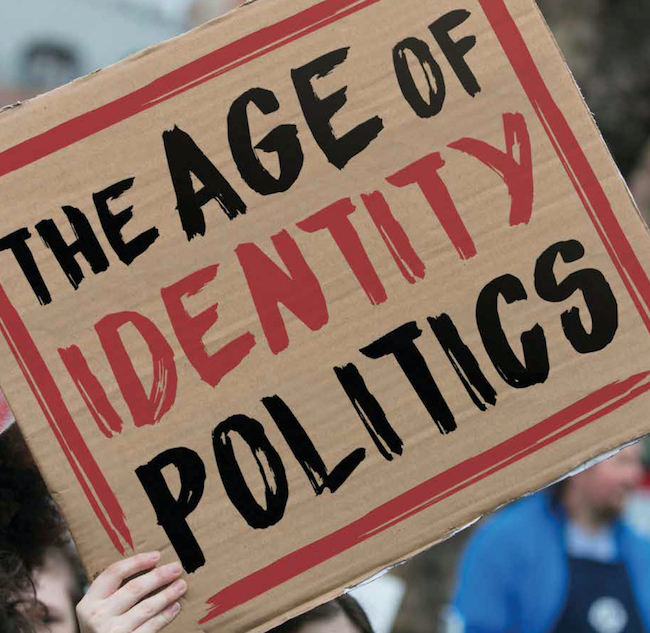
WHO OWNS FRESH WATER IN NEW ZEALAND STILL APPEARS TO BE AN ISSUE THAT RAISES ITS UGLY HEAD.
Worrying implications for ‘property rights’ exists. Govt being forceful in pushing through the Three Waters Reform, essentially an attack on property rights, a dark day for democracy in New Zealand, and community groups, voices have certainly made their voices heard as to their opposition of this robbery of communities infrastructure assets.
The govt has been extremely busy working with Iwi Freshwater Group, the water industry and local councils. The Govt is going ahead with what they describe as opportunities for Iwi in the Water Entities Act, which establishes new water services from July 2024. Govt providing for Iwi interest, rights is particularly focussed on water service delivery. The Three Waters Reform Review 2017-2020 documents the processes, engagement Govt have had with Iwi in the Three Waters Reforms. The 2020-21 reports stated “There has been many workshops, gatherings up and down the country”
This process of engagement with Iwi with govt and industry is documented in the Three Water Reform Review 2017-2020 and the Three Water Reform Programme 2020-2021. There has been many workshops, gatherings up and down the country. Scoop News reported 21st Feb 2023 ‘Three Waters Judgement Accepts No Confiscation of Assets with NO Compensation. The Timaru, Waimakiri and Whangarei Council asked the High Court for declarations on the ‘rights and interests’ that property ownerships entails. Justice Mallon responded “I accept that Three Waters Reform involves a form of expropriation for which compensation could be given, but whether it is or not is up to Parliament”
It was confirmed that the government’s Three Waters plan, plans to take away water infrastructure paid for by communities, for the government to serve its own purpose. Claiming privately owned property against the wishes of the owners of those assets. However the decision for compensation to be paid to the asset holders is one to be made by Parliament. Judgement was declines specific declaration sought by the councils, highlighted that “there is no acknowledgement from the Government that this confiscation was taking place and that a deliberate decision was made not to compensate communities for confiscation”.
Judge Mallon stated that the documents do not directly acknowledge that local councils will lose ownership that they presently hold, nor that councils ability to control the use of assets will be materially diluted through the WSE Governance Structure. Nor that local democratic accountability for the provision of Three Water services in local communities is essentially lost. However, it does not follow that the Govt, and in return Parliament is unaware of this. The proposals are directed to a new model for delivering Three Waters, a significant Three Waters infrastructure challenge, The govt has proposed a funding package but has deliberately decided that this is not intended to compensate local councils for the value of infrastructure assets, not communities”. Hence the govt can remove local democratic rights, they are not held accountable and have misled the public of NZ of the true ramifications of this legislation.
Those Council members who sought the High Court hearing stated “As owners of this critical infrastructure on behalf of our communities we are now demanding that any future changes to Three Waters policy setting respect these basic rights in property owning democracy. This is the govt deliberately undermining basic property rights. The NZ Bill Of Rights (Private Property). The purpose of this Bill is to provide for the protection of private property rights in NZ under the NZ Bill Of Rights Act 1991. The Property Rights System establishes and maintains the integrity of title to estates and interests in land in NZ.
This is the government seeking to undermine basic property rights. The NZ Bill Of Rights (Private Property) The purpose of this Bill is to provide for the protection of private property rights in New Zealand under the NZ Bill Of Rights Act. Property Rights system. This system establishes and maintains the integrity of title to estates and interests in land in New Zealand.
Article written by Dr Muriel Newman NZ Centre for Political Research 24/1/2016. This is a policy think tank. Dr Newman has previously been a MP and a former Chamber Of Commerce President in Business and Education. The article made the following points. ‘Iwi Leaders and Govt had agreed on a deadline to sort out Maori/Iwi Interests in freshwater by Waitangi Day 2016. (Report RNZ 5/2/2015). National Party planned to introduce Maori/Iwi interests in freshwater. NZCPR campaigned against this. Govt accused them of misinformation.
Article Grey Power Magazine authored by Cabinet Minister & MP for Tauranga Simon Bridges “I have been approached by a number of constituents regarding the control, ownership of NZ’s freshwater. He said,” there appears to be some misinformation”, but he wanted to clarify the matter, saying the National govt has always clearly stated “no-one owns the water”. He added
“However the govt is working with the Land and Water Forum, this includes stakeholders including Iwi to develop a common direction for freshwater management in NZ. Race based interests as to management, allocation of fresh water resources in NZ”. But Bridges ensured Grey Power readers there were no plans to give control or ownership of our country’s lakes and rivers to Iwi”
Irrespective of who owns the land over which the water flows, under common law and stature water is owned by no-one. There is absolutely no legal, moral or common sense justification for any Iwi/Maori to claim freshwater. The legal situation is that no-one owns water, no-one ever has. Reference was made to common law and the Water and Soil Conservation Act 1967 and the Resource Management Act 1991. (Canterbury University Law lecturer David Round).
Water was never regarded by the common law as a commodity. The courts held that a land owner had no right to the ownership of water which either flows through or percolates within the land. In this way the courts recognised water like air is not only vital to the survival of all species on the planet but is something in which humanity has no hand in creating. It therefore like air occupies a unique status in the eyes of common law, it cannot be owned b y anybody. Irrespective of the law.
Some Iwi/Maori have continued to claim ownership of freshwater. But since successive govts and courts have consistently rejected their opportunist claims, they have now turned their attention to the ‘control’ of water. (Former Judge Anthony Willy) “Water was never regarded by common law as a commodity”
Former Law Lecturer, Judge Anthony Willy, agrees: “Water was never regarded by the common law as a commodity”.
(NZ Herald October 2016) During the Labour Govts 3rd term in office, leaders of some of the country’s most powerful tribes sought Maori control of water. Labour Govt stated that “Water is not owned, but is controlled, managed by the Crown for ALL New Zealanders”. Tribes were under the impression that the Labour Govt were considering privatisation of water rights as part of a water management reform programme.
The tribal leaders considered if such a property right was created, they had a claim to it under the Treaty since they had gained a lucrative $170 million fishing settlement, Fishing Quota created as a property right, many tribes received substantial settlement of quota fishing company shares and cash. They believed a water settlement would dwarf the fisheries settlement & with the Ministry for the Environment estimating the total value of fresh water to NZ is now worth almost $35 billion (2016). And Iwi demands continued, and Iwi voices that claimed they owned the water in NZ.
Nationals concession to tribal demands for freshwater was signalled during the partial privatisation of the State owned power companies in 2012. The Crowns Counsel stated that the power company sale would not precent the govt from recognising the rights and interests of Iwi in freshwater”, and even suggested the creation of new ‘economic rights over water’ in the form of a ‘levy or royalty”. Emphasizing, recognising Maori/Iwi Rights may include decision making in relation to care, protection, use, access and allocation, and/or charges or rentals for water.
All this information being evidential yet NZCPT was accused of misinformation.. “The rule of law means simply that we shall be governed solely by the law properly enacted after due process, not by arbitrary whim of any person or group. It is a point of due process ‘a the way in which laws come into being’. That the Rule of Laws intersects with democracy, which together are the guarantors of our civic rights”
“It is crucial and unbridgeable divide between the rule at whim of the despot and his or her cronies and rule by law that we imperil when we permit exceptions no matter how well intentioned. Such an exception sought by the minority of the population to corner rights to fresh water is a classic example of a derogation of the Rule of Law simply because it gives governance over a crucial public good to a small and unelected group to the detriment of the majority.
The truth is that no form of constitutional govt of itself can guarantee our civil liberties, but the intersection of the Rule of Law as administered by the Courts and the democratic process offers the best protection known to history- the enablement of tribal groups to gain control of freshwater will therefore not only entrench separatism in NZ but it will undermine the Rule of Law. (Judge Anthony Willy)
References were made to -Gisborne Council had already established a joint resource consenting authority with Ngati Porou for control of freshwater in their region. (prior to Oct 2016). Minister for the Environment Nick Smith was already committed to preferential access for Iwi in catchment based processes, stating he intended to influence councils by issuing requirement or guidelines to regional councils when choosing or implementing allocation approaches or reviews of existing allocations. National caved in to Maori Council demands for rights to freshwater. On the verge of water rights in perpetuity to tribal interest, but required councils to involve local Iwi/Maori tribes in the management, allocation, control of fresh water in their regions (prior to 2016)
There is no form of constitutional govt of itself can guarantee our civil liberties, but the intersection of the Rule of Law as administered by the Courts and the democratic process offers the best protection known to history- the enablement of tribal groups to gain control of freshwater will therefore not only entrench separatism in NZ but it will undermine the Rule of Law. (Judge Anthony Willy). Under British common law, naturally flowing freshwater is not owned by anyone, but is treated as a public good.
The NZ Bill Of Rights (Private Property Rights) Section 11A, “Right to own property”, inserted by clause 4, states: “Everyone has the right to own property, whether alone or in association with others.” Section 11B, “Right not to be arbitrarily deprived of property”, inserted by clause 4, states: “No person is to be deprived of the use or enjoyment of that person’s . NZ Bill Of Rights is traditionally contained in Common Law ‘The Judges Rules 1912 now set in 23 (1)b of NZ Bill Of Rights. – NZ Bill Of Rights has been traditionally contained in Common Law in ‘The Judges Rules 1912 now set in 23 (1)b of The NZ Bill Of Rights 1991. Carol Sakey https://wakeupnz.org
https://www.dia.govt.nz/Three-Waters-Reform-Programme
-
-
Friday - March 3, 2023 - NATURAL RESOURCES IN NZ
(5)





Leave a Comment